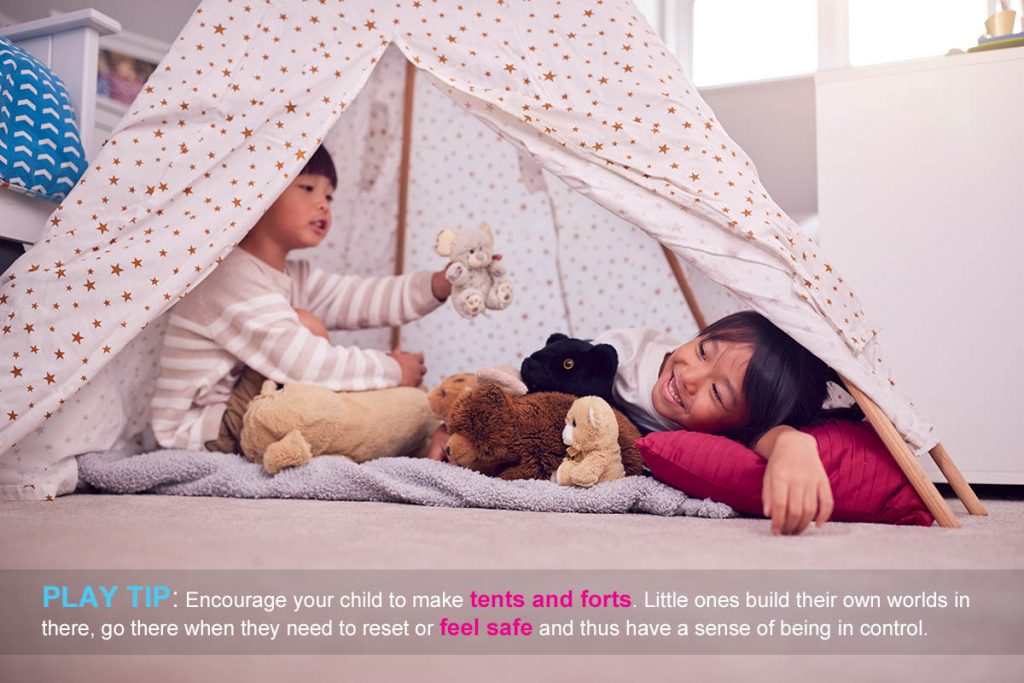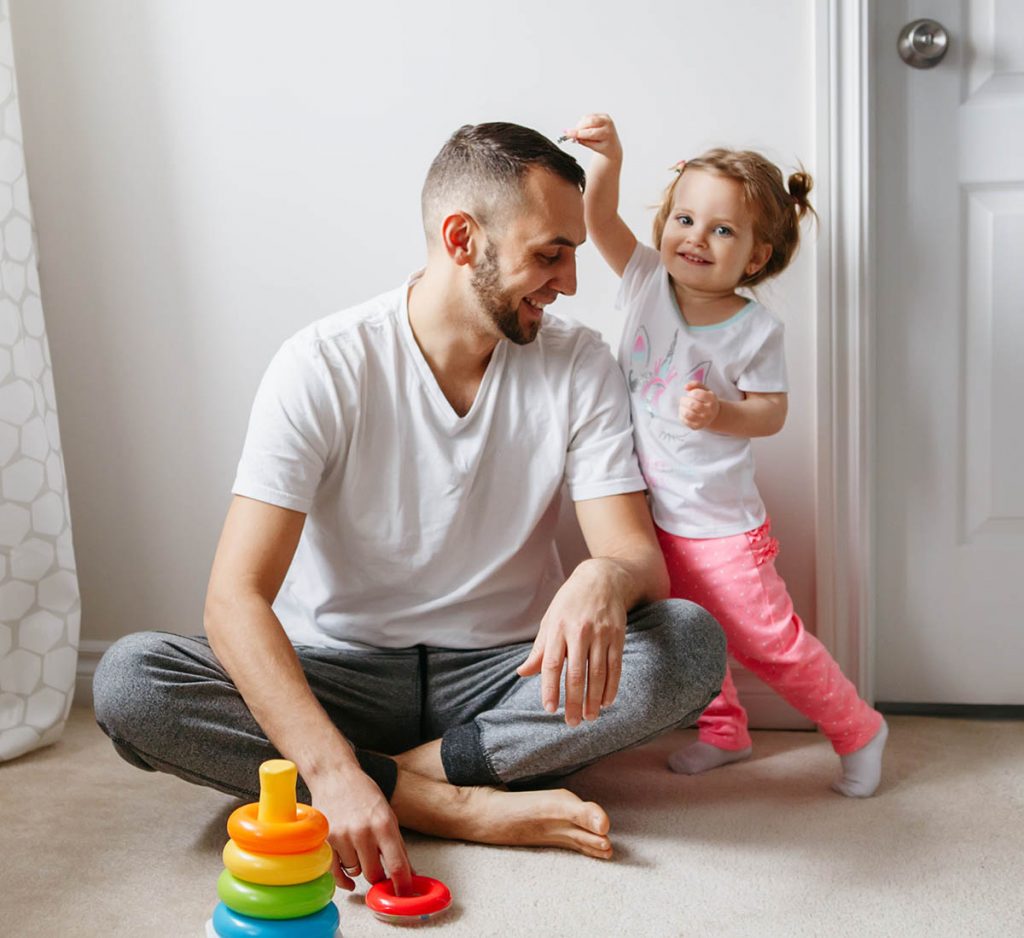
How Playing Helps Develop Emotional Regulation in Children
Emotional Regulation in Children – CONTRIBUTOR: Lara Schoenfeld
Occupational Therapist, Co-Founder of Play Sense, Founder of Nanny ‘n Me
Many educators and parents would agree that play = learning. But during the coronavirus crisis, I think it is crucial to address how enabling children to play is a way to encourage their emotional wellbeing.
Currently, there are many articles cited in the press where parents report that their children are experiencing: difficulty concentrating, feeling lonely, they are more passive and withdrawn to being angry, irritable, and agitated. Children like adults respond differently to trauma. They need help regulating these emotions and the best way is through play! Emotional development during early childhood is a key factor in helping your child cope with stress in the future.
There are 4 criteria to playfulness outlined by Bundy (1997) which would be useful to our discussion:
- Control – When children have a choice in an activity when they modify an activity or challenge themselves, they have high internal control
- Motivation – when children show enjoyment, persistence, concentration, and repeat play actions – they have said to have high intrinsic motivation
- Suspension of reality – pretending, using conventional objects in an unconventional way, joking, clowning, and being creative are indicators of this aspect of playfulness
- Framing – this is the giving and receiving of social cues. Children show “I’m a player” through eye contact and gestures as well as giving us cues as to how you should play with them.
How does play help children regulate their emotions?
Play enables children to feel in control
The current scenario feels out of control, nothing is the same as it used to be for little ones. Play creates choice, motivates them, encourages creativity and this helps them to feel in control. They can focus on an enjoyable activity that brings them to the here and now and out of a state of worry. Play eliminates boredom and helps them to feel they have acted on the world. Sensory play is a wonderful way for children to immerse themselves fully and escape in a healthy way.
Play tip: encourage your child to make tents and forts. Little ones build their own worlds in there, go there when they need to reset or feel safe and thus have a sense of being in control.

Play helps children make sense of things that are difficult to understand
Make-believe play is especially important now as it helps little ones process their fears, act them out, and therefore communicate their inner world. Play here is a type of therapy – they can release their stress through play.
In the current context, this means that parents might observe children playing coronavirus games or games where there is a theme of illness or death. This is normal – parents shouldn’t discourage it, they can use it to stimulate later conversations if they are concerned about their child and see it as a helpful way to understand what their child may be experiencing.
Play tip: Playing ‘doctor doctor’ is a great way to scaffold their ability to make sense of the current ‘grown-up’ talk they are hearing. Even washing hands has become a story about the Baddy germs – the Mr good soap and washing all their cares away! Parents can use simple make-believe activities to regulate their fears and give words to what they hear by making it a game.
Play helps children meet a primary need for connection
When parents or teachers enjoy a play activity together with a child, it releases stress for both of them. In what neuroscientists call “serve and return interactions”, parents and teachers need to pick up little one’s cues as they serve through eye contact or gesture and then return the serve. This has been shown to build the architecture of the brain and is wired through our emotional processing center. Playing, connecting, and being physically close signal to your child that things will be okay again. It also helps you identify issues that may need more conversation or unpacking.
When a child asks to play a game, responding to them says: I see you, you are valuable, I want to spend time with you. You belong.
Play tip: Encouraging nature walks for families is a wonderful way to encourage such connection.

Play helps children feel safe as it establishes a routine
When lockdown started for us in South Africa, it took a few weeks for everyone to start feeling a sense of normality again – this was at the exact point they had created a new routine. A flexible routine with play built into it enables children to anticipate what comes next. It makes them feel safe. Encouraging parents to build play into wake up, eating, nappy changing and bedtime routines helps making play achievable e.g. wake up time – play music and read. During the day, balance more active and more quiet play activities e.g. puzzles and then outdoor play. Nappy changes can become times for singing and rhymes. Eating is a great way to add fine motor games such as posting, matching, and sorting. They can encourage ‘Clean up time’ – chores are a wonderful way of them gaining mastery and feeling that they are contributing. Then reading again at bedtime ensures play is part of a routine.
There has been much emphasis on how much adults are dealing with and how stressed they are – rightly so. But little children are also under pressure and play helps them process their feelings and the scenarios they find themselves in. Happy playing!
References
- https://edition.cnn.com/2020/05/14/health/un-coronavirus-mental-health/index.html
Leave a Reply
You must be logged in to post a comment.